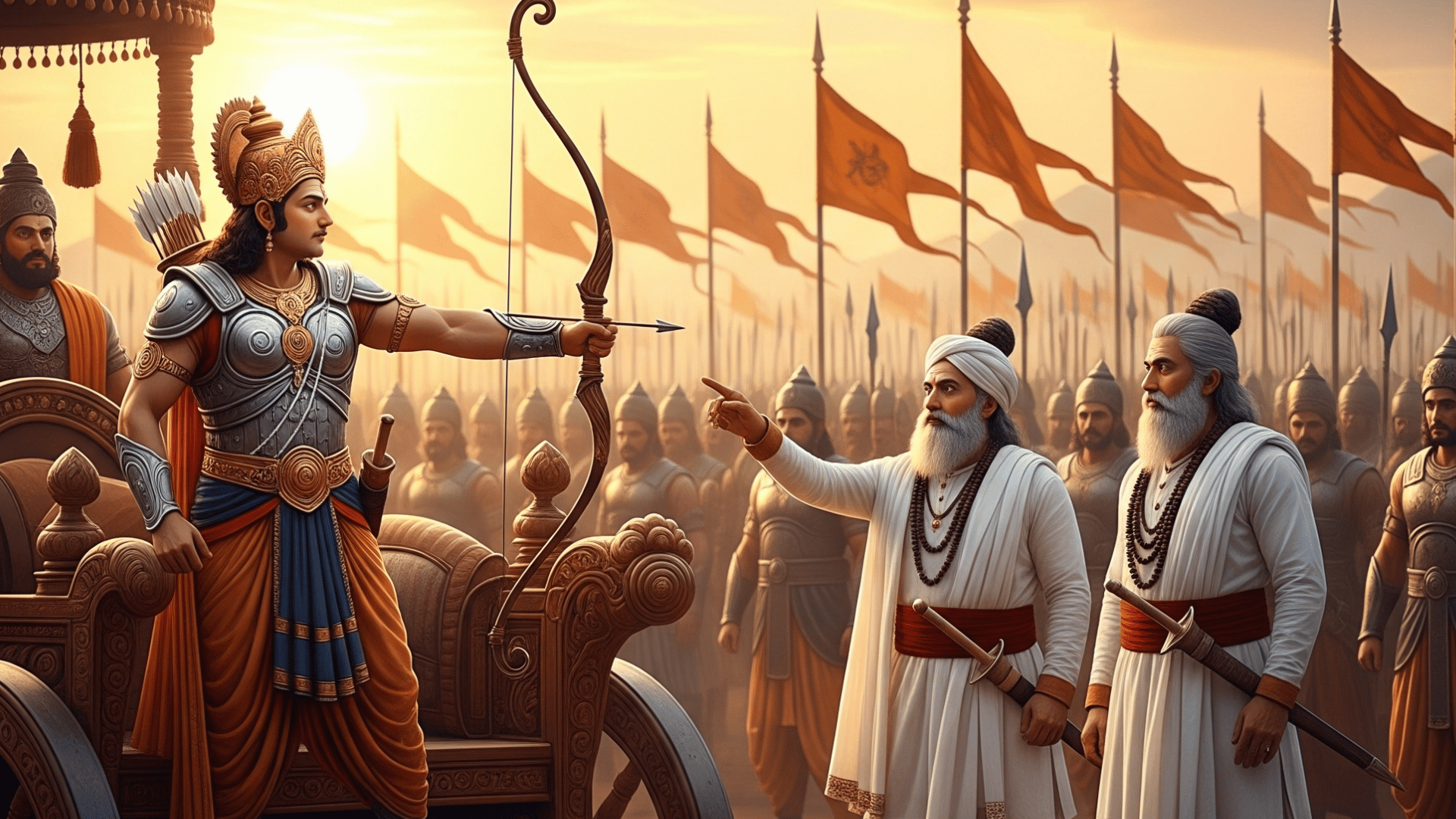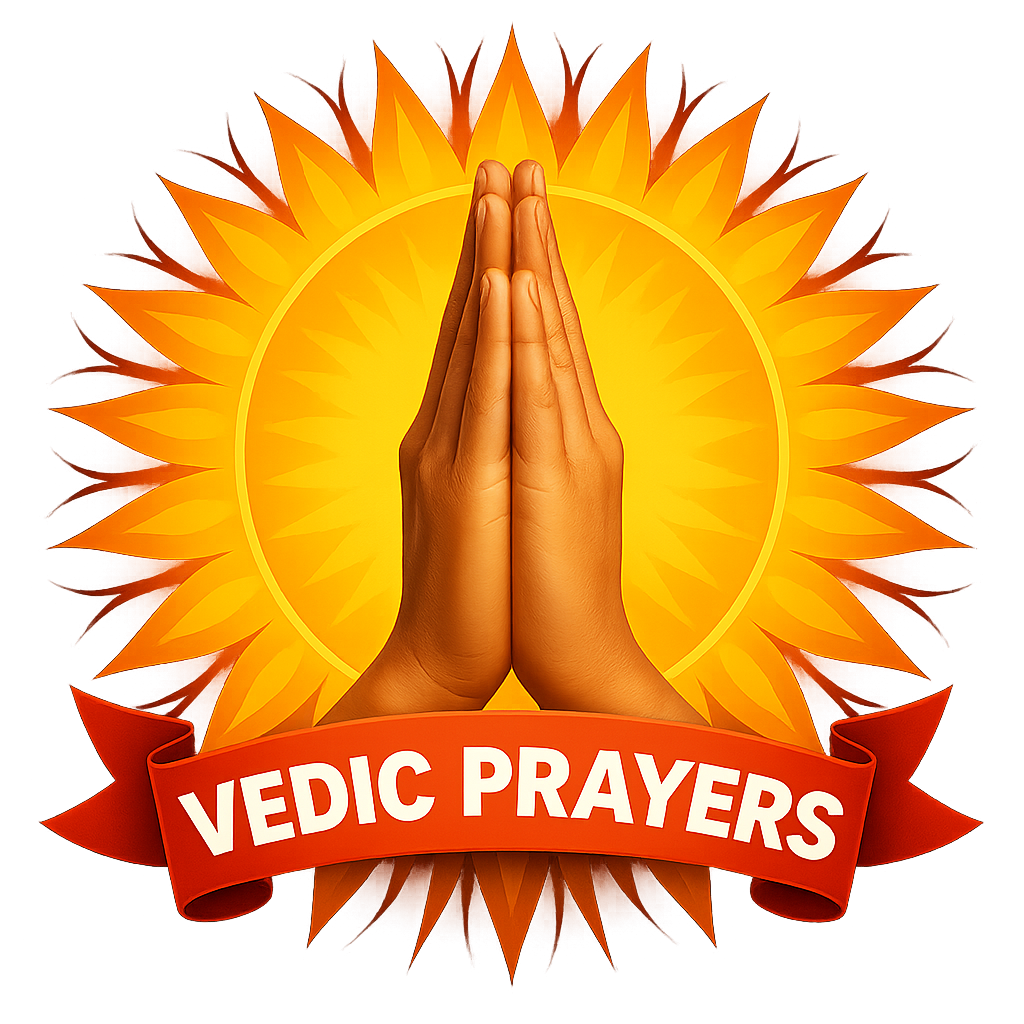
Chapter 1 – Arjuna’s Despondency
Verse 3
Pashya, etaam’, Panduputraanaam’, aachaarya, mahteem’, chamoom’,
Vyudaam’, Drupadputren, tav, shishyen, dheemta ||3||
Duryodhana now turns to his teacher Dronacharya and says:
Pointing towards the battlefield, he remarks:
“O Acharya! Behold this mighty army of the sons of Pandu,
arrayed by your own intelligent disciple, the son of Drupada – Dhrishtadyumna.”
Duryodhana is inwardly anxious, and this anxiety manifests as sarcasm in his speech.
Psychology hidden beneath the words:
- “Pashya” — “Look!”
This is a direct command, but it carries both concern and a hint of warning.
Duryodhana is not just pointing out the military arrangement —
he is subtly reminding his teacher: “This is your disciple, who has organized the enemy army.” - “Mahateem Chamoom” — “Mighty army”:
This is an acknowledgment.
Even though they are enemies, Duryodhana admits their strength and organization. - “Vyoodham” — “Well-organized formation”:
Indicates that the army is not just large in number, but mature in strategy. - “Drupadaputrena” — “By the son of Drupada”:
This hits a nerve for Drona. Drupada was his old enemy,
and now his son is leading the Pandava army. - “Tava Shishyen” — “Your own disciple”:
This is sarcasm. Duryodhana deliberately says it in a way that seems to blame his guru:
“Your disciple is now leading our enemies.” - “Dheemataa” — “Wise/Intelligent”:
While it's a form of praise, it also reflects Duryodhana’s inner jealousy and concern —
that the opposing side has a skilled strategist.
Deeper Message:
This verse reveals Duryodhana’s internal insecurity and confusion.
He tries to ease his mind by placing the emotional burden on his teacher.
In politics, when one’s own disciple or ally stands on the other side,
it becomes more than just a matter of war — it becomes a crisis of relationships and self-confidence.
People like Duryodhana, when they fail to recognize their own fears and insecurities,
often resort to blaming others.
Lessons for Us:
- Those from whom we gained knowledge are still independent in their decisions.
- A true teacher is not bound by sides — they stand with righteousness (Dharma).
- This verse teaches us: if we seek to justify ourselves only by blaming others,
it reveals our weakness, not our strategy.
No matter the circumstances, recognizing others’ abilities is a sign of strength —
but when that recognition comes mixed with jealousy,
it turns into self-deprecation.
















